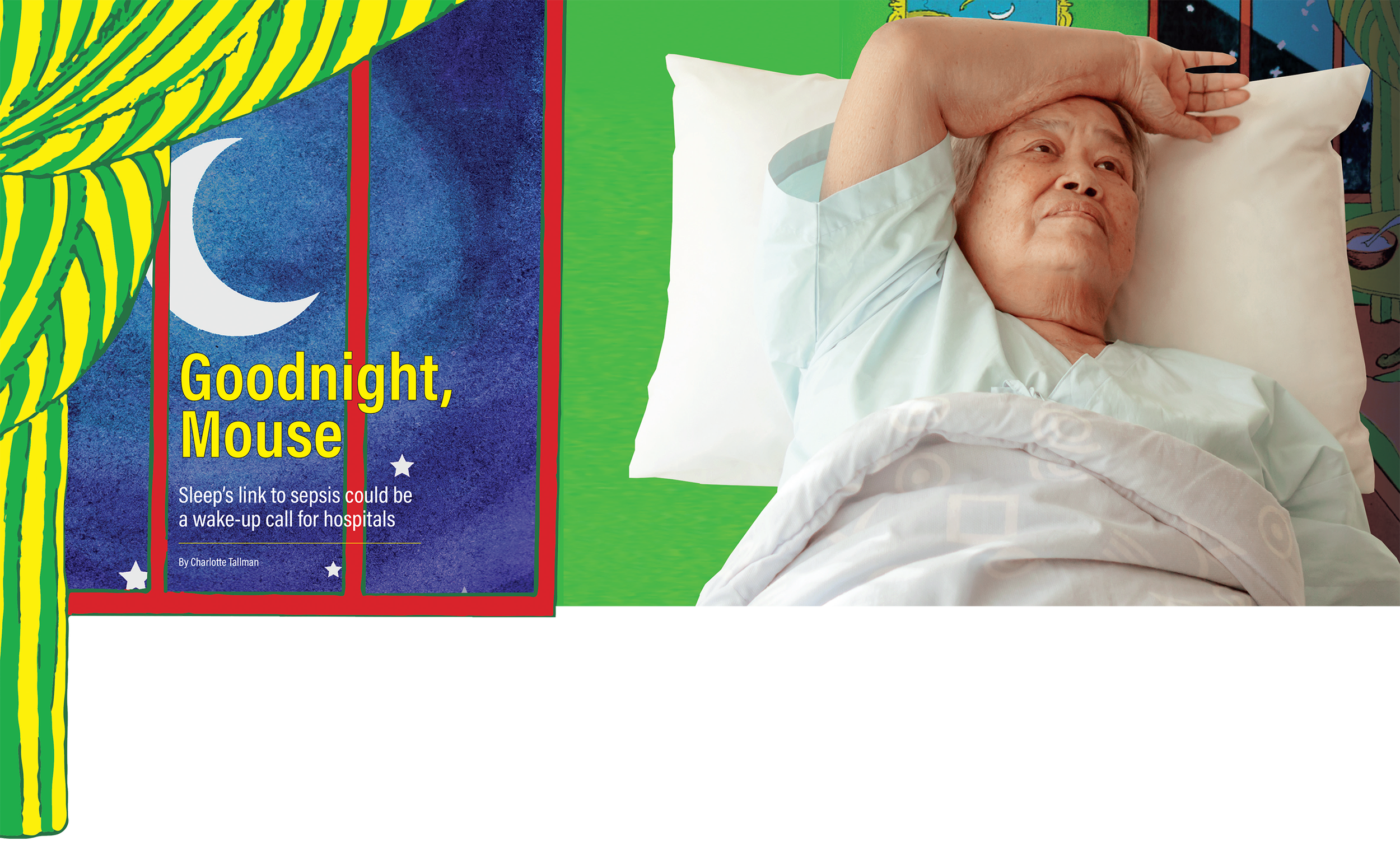But Dr. Walker, a researcher at Texas Tech University Health Sciences Center El Paso, knows the classic children’s bedtime story is no match for the beeping noises, bright lights and unexpected check-ins hospital patients experience.
At the university’s Center of Emphasis in Infectious Diseases, she’s studying patients’ quality of sleep and its connection to sepsis, a life-threatening complication of an infection.
“We know it’s important to get a good night’s sleep for our health, but many of us don’t get enough. That’s especially true for hospital patients because their sleep is constantly disrupted,” said Dr. Walker, an assistant professor who joined the Center of Emphasis in Infectious Diseases in 2014.
According to the Centers for Disease Control and Prevention, adults need seven or more hours of sleep in a 24-hour period for the best health and well-being. Missing sleep doesn’t just cause drowsiness, but it can increase the risk for chronic diseases and conditions, including Type 2 diabetes, cardiovascular disease, obesity and depression. Even if a person feels they are adapting to sleep restriction (with an extra cup of coffee, for example), the body can show significant declines in physical and mental performance.
Goodnight clocks, and goodnight socks. Goodnight little house, and goodnight mouse.
Wendy Walker, Ph.D., loves the sleep-inducing poem, “Goodnight Moon.”
“We know it’s important to get a good night’s sleep for our health, but many of us don’t get enough. That’s especially true for hospital patients because their sleep is constantly disrupted”
The National Institutes of Health’s National Heart, Lung and Blood Institute recently awarded Dr. Walker a $489,160 grant for “Goodnight Mouse: Sleep and Sepsis,” a preclinical study using mouse models.
It allows Dr. Walker to replicate what happens when a patient’s sleep is disrupted and how that disruption is connected to sepsis. The data may lead to interventions to improve hospitalized patients’ quantity and quality of sleep or treatments to reverse the effects of poor sleep.
Sepsis is the body’s extreme response to an infection. Sepsis occurs when an existing infection triggers an inflammatory chain reaction throughout the body, and it can rapidly lead to tissue damage, organ failure and death. According to the CDC, each year about 1.7 million adults in America develop sepsis, and at least 350,000 who develop the condition die in the hospital or are discharged to hospice care. One in three patients who die in a hospital has had sepsis during that hospitalization, making it the leading cause of death in hospitals.
The three-year NIH grant will provide research opportunities for master’s-level students at the Francis Graduate School of Biomedical Sciences. The school enrolls a high percentage of underrepresented Hispanic and other minority students, many of whom are first-generation college students. In addition to the research experience, students will have opportunities to present at national conferences.
“I’m passionate about mentoring, and because we have such a fantastic graduate school, we can offer opportunities these students might not otherwise have,” Dr. Walker said. “It’ll help students and our community. They’ll become biomedical researchers or doctors with solid research behind them, and many will stay, addressing the critical health care shortages in our region.”




